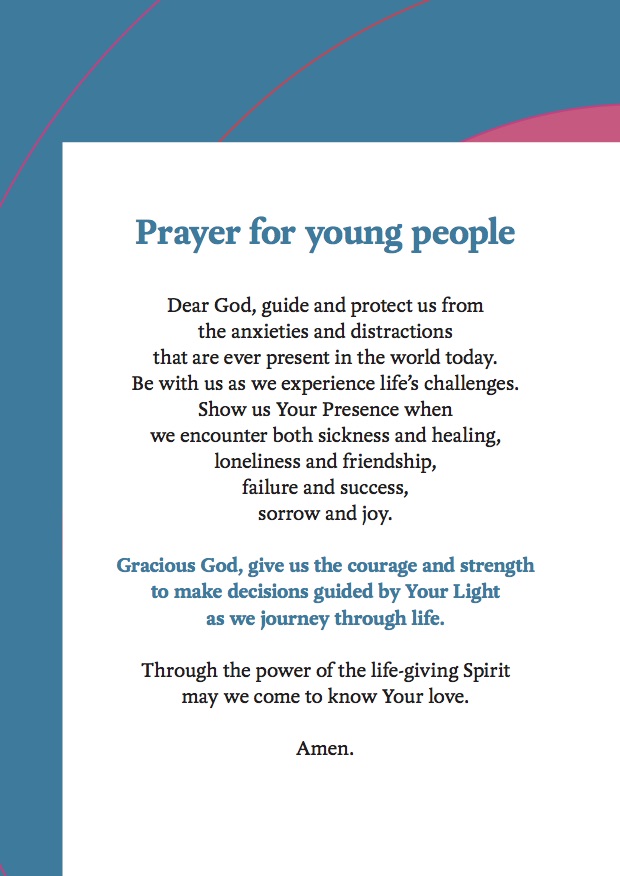There’s something to be said for taking a step back and just letting things flow. When we worry, we disrupt the natural order of things and create chaos. Even though it might feel like the world is on top of us, sometimes the best way to cope is by simply focusing on our breath and keeping an open mind.
Prayer to Not Worry
Prayer to not worry is a powerful way to reduce stress. There are many benefits to prayer, including reducing anxiety and depression. Prayer can also help you connect with God and feel more in control of your life.
If you’re feeling overwhelmed by your concerns, start by focusing on one worry at a time. Write out your worries and ask God to help you address each one. You can also pray for guidance on how to handle the situation.
Prayer can also help you connect with God in a special way. When you’re struggling, it can be reassuring to know that He’s with you no matter what. Prayer can also help you find peace in difficult times.
Prayer to Release Stress
When you find yourself worrying about something, it’s natural to feel stressed. But worry is not always productive, and can actually lead to more stress in the long run. To pray for relief from worry, here are some words to consider:
Blessed be the God and Father of our Lord Jesus Christ, who has given us eternal comfort and strength through his Son. Help us to put our trust in him, and help us to remember that he is always with us. In his name we pray, amen.
When you find yourself worrying about something, take a few deep breaths and remind yourself that God is with you. Pray aloud or simply think these words to yourself: “God is with me.” Even if you don’t believe in God, this simple prayer can help release some of the stress you’re feeling.
Prayer to Reduce Anxiety
Prayer can be a powerful tool to reduce anxiety. Prayer can help you focus on your thoughts and feelings, and can provide comfort in times of stress.
There are many different types of prayer, so find one that is comfortable for you. Sometimes it is helpful to think about specific prayers that you want to pray for yourself or others.
Some helpful tips for praying for anxiety include:
1. Pray forpeace, strength, and guidance during times of stress.
2. Pray for patience and understanding during difficult times.
3. Pray for knowledge and understanding of your anxiety disorder.
4. Pray for guidance in managing your anxiety symptoms.
Prayer to Increase Faith
When faced with worrying thoughts, often the first thing to pop into our heads is “What if…?” Unfortunately, this type of thinking only serves to further upset and stress us out.
Instead, try focusing on your faith in God. Prayer can help you connect with Him and build trust in Him. This will help you to find peace and assurance when worries come up.
Start by praying for yourself and asking for His guidance. Share your worries with Him, and let Him help you deal with them in a way that is healthy for both you and your relationship with Him.
The Purpose of Prayer
The purpose of prayer is to connect with God and find comfort. Prayer can be used to ask for forgiveness, guidance, and strength. Prayer can also be used to express gratitude and communicate concerns. Prayer can be a way to connect with others and build community.
The Benefits of Prayer
There are many benefits to prayer. Prayer can help us connect with God, build relationships with others, and find peace. Prayer can also provide us with guidance and comfort during times of trial.
Prayer can help us connect with God. When we pray, we open ourselves up toGod’s presence and hear his voice. Prayer can also help us learn about our own spirituality and find deeper meaning in life.
Prayer can also build relationships with others. When we pray for someone, we are expressing our love and concern for that person. Prayer can also create lasting friendships.
Prayer can provide us with guidance and comfort during times of trial. When we pray for guidance, we are asking for wisdom and understanding. Prayer can also provide relieve from pain and distress.
The Steps to Prayer
There is something to be said for taking the time each day to prayerfully reflect on your thoughts, feelings and concerns. Whether you sit quietly in solitude or choose to pray with others, the benefits of prayer are immeasurable.
Below are four steps you can take to start a practice of effective prayer:
1) Set aside time each day to focus solely on God. Depending on your circumstances, this might be five minutes in the morning, before bed or during lunchtime.
2) Ask for guidance and permission from God before you speak. This will help you avoid worrying about what you might say or how your words might be received.
3) Express gratitude for all that God has done for you in the past and present. This will help you connect with Him on an emotional level and draw strength from Him in times of need.
4) Let go of any expectations or assumptions about what should happen during your prayer time. Instead, allow God to lead and guide your thoughts and actions.
How to Start Praying
If you’re one of the legions of people who find it hard not to worry, this prayer could be for you.
Dear God,
Please help me learn to not worry so much. Teach me how to trust You and to know that whatever happens, You will handle it in the best way possible.
In Your Name,
(Your name)
Often times, we find ourselves feeling overwhelmed and stressed out. We worry about what is happening in the world, we worry about our job, and we worry about everything else under the sun. But here’s the thing: worrying is not going to solve any of those problems. In fact, it might actually make them worse. So if you find yourself constantly worrying, try these three simple prayer exercises to help change your perspective: 1) Ask for guidance from a higher power or deity. This could be anything from a specific person or object to a universal force like God or Nature. It doesn’t really matter who you ask as long as you are respectful and believe that they can help you. 2) Make a list of things that are bothering you right now and write down why each one is stressing you out. Once you have listed all of your concerns, take some time to think through each one carefully and decide whether or not there is any validity to it. If there isn’t, put it off until later (or forget about it entirely). 3) Spend some time focusing on positive thoughts instead of negative ones. Instead of thinking about all the ways things could go wrong in your life (and inevitably do), focus on






